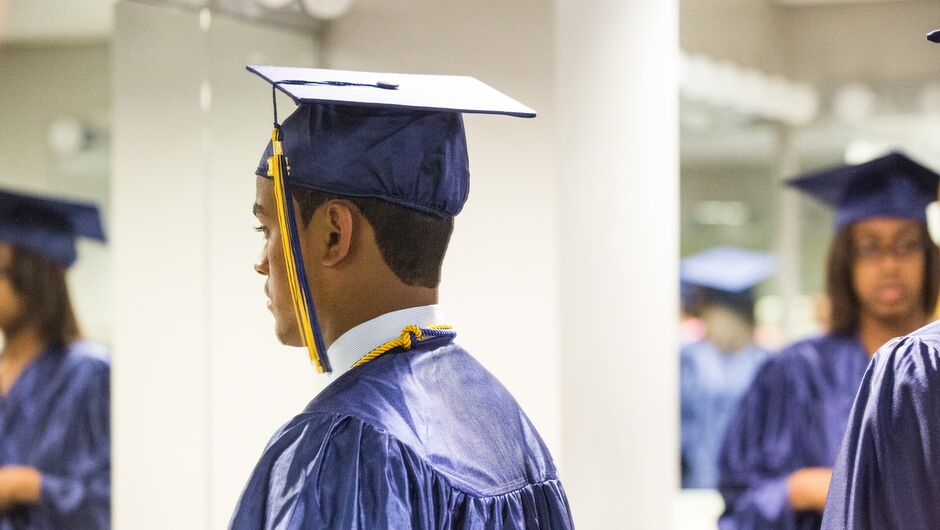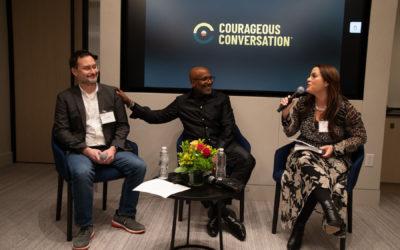By Laura Zingg—Sept. 14, 2020
The Latinx community is not a monolith, but full of rich complexity and history. This community includes individuals with roots in dozens of countries worldwide and those with multiple racial identities, cultural, and linguistic backgrounds.
As we celebrate Latinx Heritage Month, we spoke to four Teach For America partners from different backgrounds within the Latinx diaspora. They share how they are working to disrupt racism within their communities and ensuring that more Black, Indigenous, and people of color (BIPOC) have a seat at the table—in schools, policy, and leadership. Driven by their personal stories, these leaders have become mentors, connectors, healers, and door-openers for the next generation of rising leaders who share their backgrounds.
Navigating candid conversations about race and racism can be difficult. For Luis Versalles (he, him, his), it’s his full-time passion.
Versalles is the director of pre-K-12 district partnerships at Courageous Conversation, a division of Pacific Educational Group, which has been engaging, sustaining, and deepening interracial dialogue for nearly three decades.
Versalles and his team support the largest swath of the organization’s work, partnering with pre-K-12 schools to envision an educational experience that prioritizes racial literacy and social justice in education. Courageous Conversation works with superintendents, school boards, educators, students, and families to offer coaching, workshops, and certification programs to empower others to facilitate conversations about identity and racism in different contexts.
“We’re organized around a belief that systemic racism is the most devastating of the factors impacting our children of all races,” Versalles says. “The work becomes, how do we envision a schooling process that unapologetically is about creating not only racially literate young people of all races but is centering the needs of the historically least served families and communities.”
For Versalles, this work is deeply personal. As a young Afro-Cuban growing up in Minneapolis, Versalles recalls trying to reconcile conflicting stories about his identity—stories of pride for Afro-Cubans’ struggle and resilience, while also confronting “a soft tenor” of anti-Black sentiment.
“Those are some of the experiences I’ve had—of both affirmation and challenge with anti-blackness within my own family. My work has shown me that this residue of systemic racism is not unique to me,” Versalles says. “That’s why I’m very grateful for this work. I didn’t always feel like I had a tool or a way to have that hard conversation with people.”
Versalles is encouraged by the increased consciousness and conversation he’s encountered within the Latinx community around the deep history and complexity of Latinx identities. Through his work, he creates spaces for people to explore the intersection of Black, Latinx, Indigenous, and other identities, which are often overlooked in racial equity transformation efforts.
While there is still a long way to go, Versalles’s work provides healing spaces for others. For Versalles, one of his most powerful healing experiences has been mentoring a Black boys’ group at his son’s elementary school, alongside Black males from the community. Versalles brings his skills into the space and helps students process their racial navigation while also challenging them to see their role as racial equity leaders.
“We create a space for their voices to be centered and really to affirm their experiences,” Versalles says. “Personally, that is probably some of the most meaningful work I’ve done.”
Read more at Teach For America.




